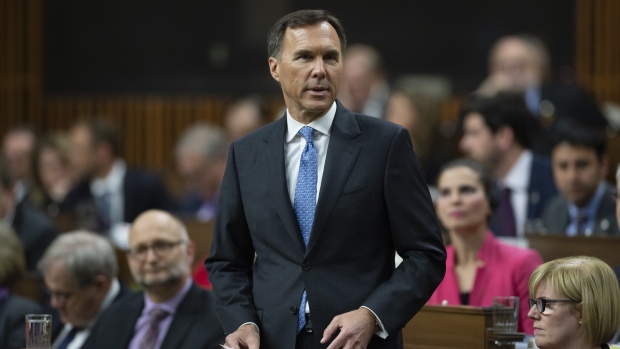Mar 20, 2019
Morneau says stock option tightening will only affect 'very high income' employees
, BNN Bloomberg

Finance Minister Bill Morneau said the federal budget’s plan to rein in large stock grants at major, established companies will not affect the majority of employees who receive them.
Stock options in Canada currently receive preferential tax treatment, with only half the benefit taxed at the normal rate of personal income. The government plans to introduce a $200,000 annual cap on the use of that benefit for employees of “large, long-established, mature firms,” but not startups, according to budget documents.
In an interview with BNN Bloomberg’s Greg Bonnell after the budget was released Tuesday in Ottawa, Morneau said the goal of the plan is to make Canada’s tax treatment of stock options similar to that in the U.S.
“We’ve been very clear that for the overwhelming majority of people who get stock options – even in large, established companies – they’re not going to be impacted by this,” Morneau said.
“It’s just for those very few people that are in a very high income situation, where we just think the treatment shouldn’t be more beneficial than they can get in the United States.”
Morneau added that the government plans to release more details in the summer.
The details of the plan will likely be watched closely, after the Liberal government faced backlash for another tax treatment change introduced in their 2017 budget.
That year, the Liberals promised changes to restrict the use of private corporations by professionals such as doctors to get better tax treatment for their incomes, indicating that more details would come.
When Morneau released the details the following summer, an angry response prompted the government to reverse course.




